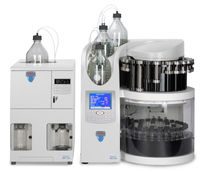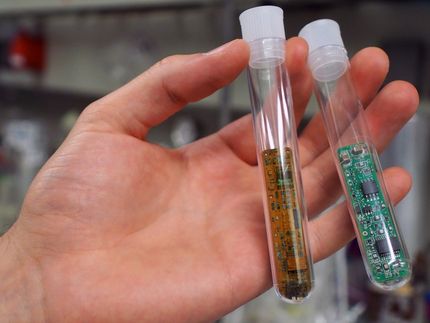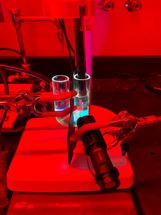BASF biocides protect materials
microorganisms such as yeasts, moulds, bacteria and viruses constitute a large risk to human health throughout the world. Less well known is the fact that microbes cause material damage and corrosion, thereby destroying billions of dollars worth of assets every year. biocides can prevent this, and modern manufacturing processes, industrial intermediates and consumer products can no longer be imagined without them. Eco-friendly water-based paints are a good example. To protect the environment, today's users demand paints that are based on water instead of organic solvents. However, this creates ideal conditions for the growth of microorganisms in the product, because water is the elixir of life for bacteria and moulds.
The demand for eco-compatible, highly effective biocides need not be a contradiction in terms. Most BASF biocides are biodegradable, eliminable or are mineralized to form harmless end-products.
Bronopol particularly efficient in combination
Bronopol is one of BASF's principal biocide agents. It is extremely effective in combination with numerous other biocides, for example certain isothiazolones, quarternary ammonium salts and dibromodicyanobutane. Using these agents together with bronopol is more efficient than applying the components individually. This gives the customer greater flexibility in choosing products, is less expensive, and reduces application rates. In addition, bronopol is very suitable for controlling bacteria that have developed tolerance to other agents, such as isothiazolones. All this makes bronopol an efficient biocide agent that BASF will continue to manufacture in the long term using well-established production technology.
Supported by registration
The main BASF biocide products, including bronopol, glutaraldehyde, phenoxyethanol, phenoxypropanol, glyoxal, dazomet und hexahydrotriazine, are supported by registrations. BASF will take every step that is economically justified to ensure that these and other agents meet the requirements of the European Biocide Directive. This policy reinforces BASF's long-term commitment to this business sector and is consistent with the model of sustained, future-oriented development.
Most read news
Other news from the department research and development
These products might interest you

ERBAdry by CARLO ERBA Reagents
Anhydrous solvents from CARLO ERBA Reagents in a clever redesign
ERBAdry series impresses with the latest generation of septa and sealing caps

Thermo Scientific™ Dionex™ ASE™ 150 or 350 Accelerated Solvent Extractor systems by Thermo Fisher Scientific
Accelerated Solvent Extraction (ASE) – Maximize results and reduce errors in food analysis!
More extractions in less time using less solvent

Get the chemical industry in your inbox
By submitting this form you agree that LUMITOS AG will send you the newsletter(s) selected above by email. Your data will not be passed on to third parties. Your data will be stored and processed in accordance with our data protection regulations. LUMITOS may contact you by email for the purpose of advertising or market and opinion surveys. You can revoke your consent at any time without giving reasons to LUMITOS AG, Ernst-Augustin-Str. 2, 12489 Berlin, Germany or by e-mail at revoke@lumitos.com with effect for the future. In addition, each email contains a link to unsubscribe from the corresponding newsletter.




























































